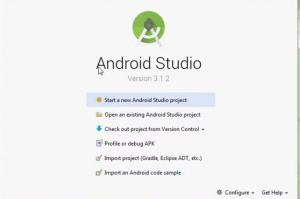Android Studio is the authority IDE (Integrated Development Environment) for Android application development and it is based on JetBrains’ IntelliJ IDEA programming. Android Studio gives numerous excellent features that upgrade productivity when building Android applications, for example:
A mixed environment where one can create for all Android gadgets
Apply Changes to push code and asset changes to the running application without restarting the application
An adaptable Gradle-based build framework
A quick and feature-rich emulator
GitHub and Code layout integration to help you to create common app features and import test code
Broad testing tools and systems
C++ and NDK support
Built-in help for Google Cloud Platform, making it simple to integrate Google Cloud Messaging and App Engine, and some more.
System Requirements
Microsoft Windows 7/8/10 (32-bit or 64-bit)
4 GB RAM least, 8 GB RAM recommended (plus 1 GB for the Android Emulator)
3 GB of available disk space minimum, 6 GB suggested (500 MB for IDE plus 1.5 GB for Android SDK and emulator system picture)
Installation Guide
Step 1: Head over to this link to get the Android Studio executable or zip file.
Step 2: Click on the Download Android Studio Button.
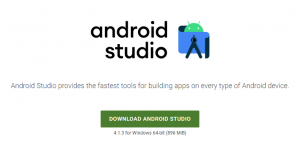
Click on the “I have read and agree with the above terms and conditions” checkbox followed by the download button.
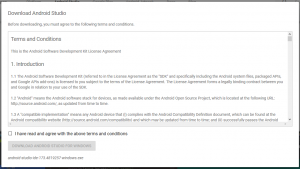
Click on the Save document button in the appeared prompt box and the document will begin downloading.
Step 3: After the downloading has completed, open the file from downloads and run it. It will incite the following exchange box.
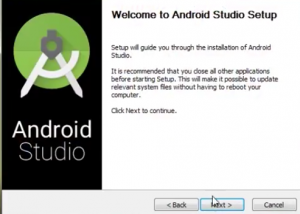
Click on next. In the following brief, it’ll request a way for installation. Pick a way and hit next.
Step 4: It will start the installation, and whenever it is finished, it will resemble the image shown below.
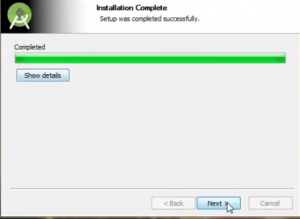
Click on next.
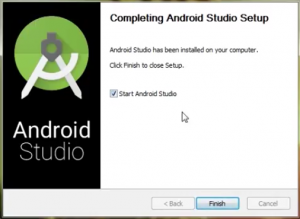
Step 5: Once “Finish” is clicked, it will find out whether the previous settings need to be imported [if the android studio had been installed earlier], or not. It is better to pick the ‘Don’t import Settings choice’.
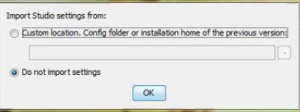
Click the OK button.
Step 6: This will start the Android Studio.
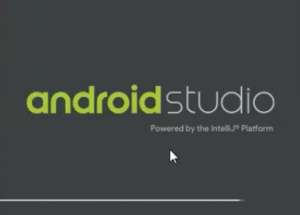
Meanwhile, it will be finding the available SDK components.

Step 7: After it has found the SDK components, it will divert to the Welcome dialog box.
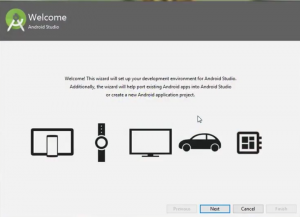
Click on Next.
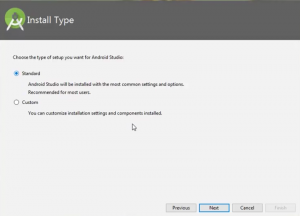
Select Standard and click on Next. Now choose the theme, whether the Light theme or the Dark one. The light one is called the IntelliJ theme whereas the dark theme is called Darcula. Pick as required.
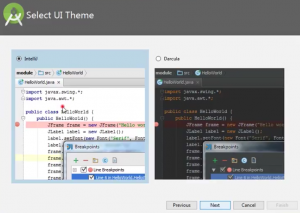
Step 8: Now it is time to download the SDK components.
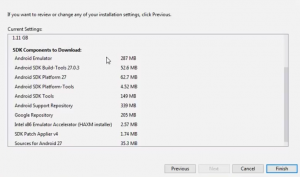
Click on Finish. Components start to download let it complete.
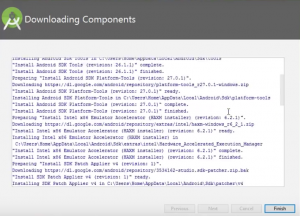
The Android Studio has been effectively configured. Now it’s time to launch and build apps. Click on the Finish button to launch it.
Step 9: Click on Start a new Android Studio project to build a new app.
